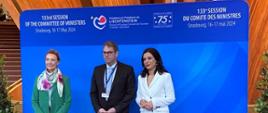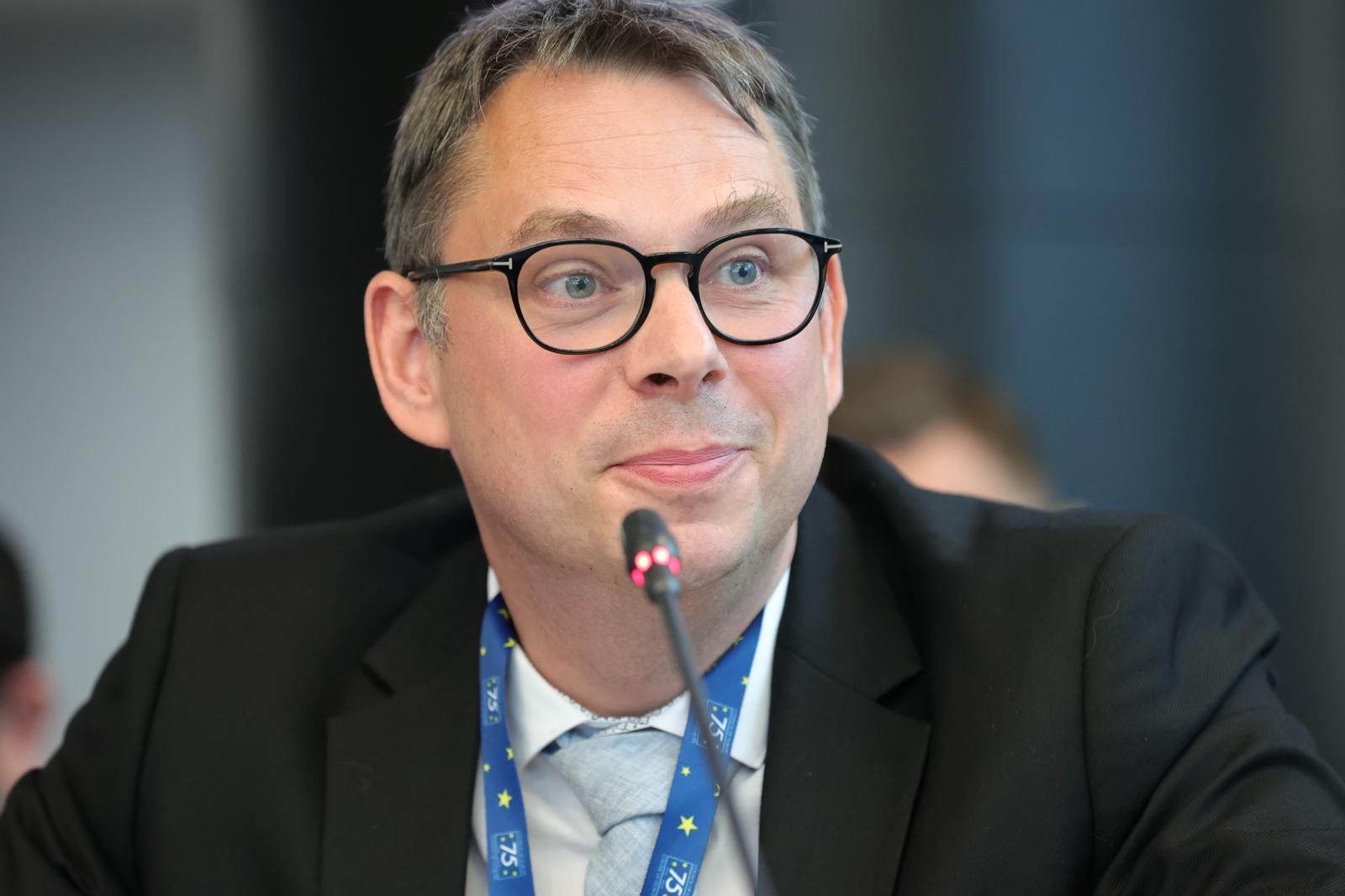133rd session of the Committee of Ministers of the Council of Europe
17.05.2024
On May 16-17, in connection with the 133rd annual session of ministers of the Council of Europe, as well as the 75th anniversary of the Council of Europe, the Undersecretary of State, Mr. Jakub Wiśniewski, paid an official visit to Strasbourg.

The head of the Polish delegation participated on May 16 in a solemn ceremony celebrating the 75th anniversary of the organization, and then on May 17 in a session of the Committee of Ministers - the decision-making body of the Council of Europe. The ministerial event was organized exactly one year after IV Summit of the heads of state and government of the Council of Europe in Reykjavik and constituted a summary of activities undertaken so far regarding the implementation of the Declaration adopted there, which redefined the priorities of the Council of Europe in the face of new challenges and the outbreak of war in Europe.
Important issues raised during the meeting included the further response of the Council of Europe to the full-scale aggression of the Russian Federation, and the issue of holding the aggressor state responsible for war crimes. At this point, the functioning of the Register of damage caused by Russian aggression against Ukraine was discussed along with the future compensation mechanism. Decision was made also about participation of the Council of Europe in the creation of the Special Tribunal for war crimes committed in Ukraine.
During the ministerial discussion, Minister Wiśniewski expressed appreciation for the 75 years of activities of the Council of Europe. It was worth noting recent creation of a platform for contact and dialogue with the democratic opposition of Belarus.
The representative of the Polish government emphasized Poland's obligation to implement the judgments of the European Court of Human Rights and the opinion of the Venice Commission, which he called "the pearl in the crown of the European integration of its member states."
The Polish delegation, like other session participants, underlined the importance of the functioning of the Register of damage. Russian crimes must be punished. One day justice will come, concluded the minister.
The ministerial session was concluded by the adoption of a Declaration on the occasion of the 75th anniversary of the organization, in which the foreign ministers stressed the importance of the operation of the Register of damage caused by Russian aggression against Ukraine (the first element of the international compensation mechanism), the accession of the European Union to the European Convention on Human Rights, and the finalization of work on the Convention protection of lawyers, youth participation in the democratic process, as well as dialogue with the OSCE, the UN and non-member states with which we share common values.
An important element of the meeting was adoption of the decision about the draft Framework Convention of the Council of Europe on Artificial Intelligence, Human Rights, Democracy and the Rule of Law - the first legal instrument of this type addressed to countries around the world, which will be opened for ratification during the conference in Vilnius in September this year.
Representatives of member state governments reviewed the organization's work in the areas of human rights, including social and children's rights, democracy, rule of law, abolition of the death penalty, education and culture, participation of civil society and young people, human rights in the digital age, migration and human trafficking, protection of journalists and measures against disinformation, discrimination and social exclusion, moreover gender equality and the environment.
On the sidelines of the session, Minister Wiśniewski also held bilateral meetings with his counterparts from Great Britain and Finland.
In accordance with the accepted tradition, the ministerial session also serves to transfer the presidency to the next country.
After Liechtenstein chaired the Committee of Ministers for 6 months, Lithuania took over the presidency.
Link to the website with the decisions adopted during the summit: Foreign ministers support Ukraine, define the organisation’s priorities and adopt a treaty on artificial intelligence - Portal (coe.int)


